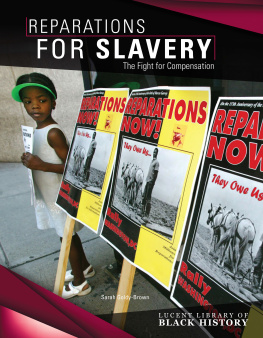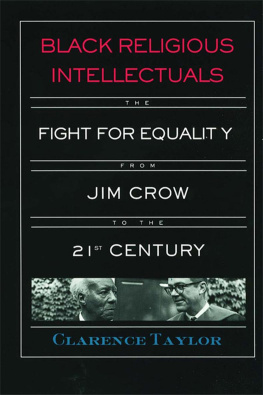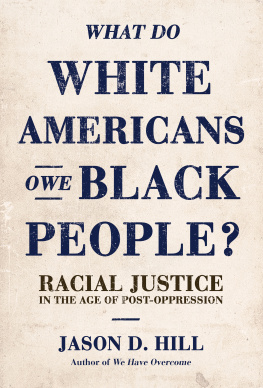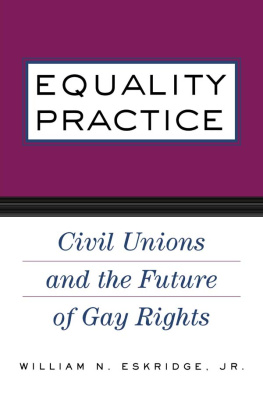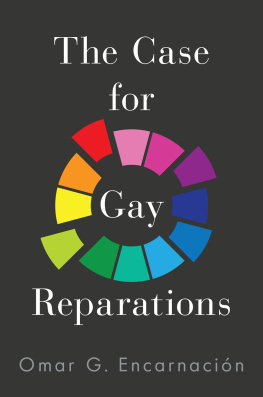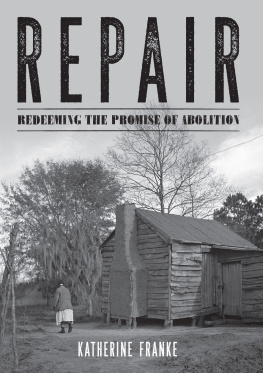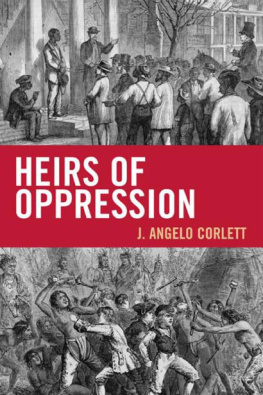William A. Darity Jr. - From Here to Equality: Reparations for Black Americans in the Twenty-First Century
Here you can read online William A. Darity Jr. - From Here to Equality: Reparations for Black Americans in the Twenty-First Century full text of the book (entire story) in english for free. Download pdf and epub, get meaning, cover and reviews about this ebook. year: 2020, publisher: The University of North Carolina Press, genre: Politics. Description of the work, (preface) as well as reviews are available. Best literature library LitArk.com created for fans of good reading and offers a wide selection of genres:
Romance novel
Science fiction
Adventure
Detective
Science
History
Home and family
Prose
Art
Politics
Computer
Non-fiction
Religion
Business
Children
Humor
Choose a favorite category and find really read worthwhile books. Enjoy immersion in the world of imagination, feel the emotions of the characters or learn something new for yourself, make an fascinating discovery.

- Book:From Here to Equality: Reparations for Black Americans in the Twenty-First Century
- Author:
- Publisher:The University of North Carolina Press
- Genre:
- Year:2020
- Rating:4 / 5
- Favourites:Add to favourites
- Your mark:
- 80
- 1
- 2
- 3
- 4
- 5
From Here to Equality: Reparations for Black Americans in the Twenty-First Century: summary, description and annotation
We offer to read an annotation, description, summary or preface (depends on what the author of the book "From Here to Equality: Reparations for Black Americans in the Twenty-First Century" wrote himself). If you haven't found the necessary information about the book — write in the comments, we will try to find it.
From Here to Equality: Reparations for Black Americans in the Twenty-First Century — read online for free the complete book (whole text) full work
Below is the text of the book, divided by pages. System saving the place of the last page read, allows you to conveniently read the book "From Here to Equality: Reparations for Black Americans in the Twenty-First Century" online for free, without having to search again every time where you left off. Put a bookmark, and you can go to the page where you finished reading at any time.
Font size:
Interval:
Bookmark:
From Here to Equality
This book was published with the assistance of the William R. Kenan Jr. Fund of the University of North Carolina Press.
2020 William A. Darity Jr. and A. Kirsten Mullen
All rights reserved
Manufactured in the United States of America
Designed by Richard Hendel
Set in Utopia and TheSans
by codeMantra, Inc.
The University of North Carolina Press has been a member of the Green Press Initiative since 2003.
Cover illustration: Memorial Corridor at the National Memorial for Peace and Justice, Montgomery, Alabama. Photograph by Soniakapadia.
Library of Congress Cataloging-in-Publication Data
Names: Darity, William A., Jr., 1953 author. | Mullen, A. Kirsten (Andrea Kirsten), author.
Title: From here to equality : reparations for black Americans in the twenty-first century / William A. Darity Jr. and A. Kirsten Mullen.
Description: Chapel Hill : The University of North Carolina Press, [2020] | Includes bibliographical references and index.
Identifiers: LCCN 2019046675 | ISBN 9781469654973 (cloth : alk. paper) | ISBN 9781469654980 (ebook)
Subjects: LCSH: African AmericansReparations. | African AmericansCivil rightsHistory. | Income distributionUnited StatesHistory. | SlaveryUnited StatesHistory. | Race discriminationUnited StatesHistory. | United StatesRace relationsHistory.
Classification: LCC E185.89.R45 D37 2020 | DDC 323.1196/073dc23
LC record available at https://lccn.loc.gov/2019046675
To our sons, Aden and Williammembers of the fifth generation born since slavery was outlawedand to our ancestors we have identified who were born enslaved and lived to see emancipation: Rachel King, Jane and Isaac Mullen, and Sallie Mullen (wife of Granville Spangler); Jennie Davenport; Nelson Strange, Letty Flippo Hart, Uriah Wise and Hannah Strange Berry Wise, Walker Taliaferro and Patsy Williams Taliaferro, and Rev. Walker Taliaferro; Millis Mitchell and Emily Williams Mitchell; Isham (Isom) Davenport and Annie Cotton Davenport; Tony Cooper and Bama Cooper and Jerry Battle and Charlotte Jenkins Battle; Harry Carloss and Betty Thompson Carloss and Nicholas Leach and Lucinda Pride Leach; and Nelson and Mahala Daugherty, Alfred and Phyllis Rhodes, Emanuel Darity and Caroline Rhodes, Andrew and Lynn Dardie, Logan Jesse Darity, and Robert Boddie and Lucy Mitchell Boddie
In order to see where we are going, we not only must see where we have been, but we must also understand where we have been. Ella Baker, AZ Quotes, 1964
The world has never seen any people turned loose to such destitution as were the four million slaves of the South.... They were free without roofs to cover them, or bread to eat, or land to cultivate, and as a consequence died in such numbers as to awaken the hope of their enemies that they would soon disappear. Frederick Douglass, Celebrating the Past, Anticipating the Future, 1875
Racism and discrimination have perpetually crippled black economic opportunities. At several historic moments the trajectory of racial inequality could have been altered dramatically, but at each juncture, the road chosen did not lead to a just and fair America.
The formation of the republic provided a critical moment when blacks might have been granted freedom and admitted to full citizenship. The Civil War and the Reconstruction era each offered openings to produce a true democracy thoroughly inclusive of black Americans. Had the New Deal project and the GI Bill fully included blacks, the nation would have widened the window of opportunity to achieve an equitable future. Passage of civil rights legislation in the 1960s might have unlocked the door for America to eradicate racism.
However, at none of these forks was the path to full justice taken.
From Here to Equality is a book primarily about the economic divide between black and white Americanshow it came to be and how it can be eliminated. Specifically, we contend, a suitably designed program of reparations can close the divide. Black reparations can place America squarely on the path to racial equality.
Reparations programs have been used strategically in the United States and throughout the world to provide redress for grievous injustices. These include the U.S. governments provision of reparations for Japanese Americans unjustly incarcerated (interned) during World War II, the German governments
Reversing the effects of slavery for newly emancipated human chattel was the goal of several plans put into action during and immediately following the Civil War. One of the countrys earliest efforts to dramatically alter blacks economic condition was the federal governments postCivil War plan to give at least forty acres of abandoned and confiscated land as well as a mule to each formerly enslaved family of four (or ten acres per person).
While some maintain that this planned payment of land and a work animal to newly freed men and women in the nineteenth century is a figment of the black imagination, historical records confirm that the promise of reparations was not a myth. It was inscribed in federal legislation. In fact, the allocation, activated in 1865, of forty acres for formerly enslaved Africans was at least the second such measure the federal government had developed to assign land to the former chattel. The idea that reparations could be an effective method of addressing the effects of slavery and white supremacy has a long history, cycling in and out of popular discourse and the national policy arena. Reparations are as timely today as they were in the 1860s.
The ultimate goal of From Here to Equality is to help rejuvenate discussions about and to promote reparations for African Americans. As the final chapter of this book will show, there are several mechanisms for reversing gross inequalities between blacks and whites that overcome the frequent reflexive reaction that this is impractical or infeasible. Real equality is a worthy goal, and it can be achieved.
Reparations are a program of acknowledgment, redress, and closure for a grievous injustice. Where African Americans are concerned, the grievous injustices that make the case for reparations include slavery, legal segregation (Jim Crow), and ongoing discrimination and stigmatization.
ARCthe acronym that stands for acknowledgment, redress, and closurecharacterizes the three essential elements of the reparations program that we are advocating. Acknowledgment, redress, and closure are components of any effective reparations project. Acknowledgment involves recognition and admission of the wrong by the perpetrators or beneficiaries of the injustice. For African Americans this means the receipt of a formal apology and a commitment for redress on the part of the American people as a wholea national act of declaration that a great wrong has been committed. But beyond an apology, acknowledgment requires those who benefited from the exercise of the atrocities to recognize the advantages they gained and commit themselves to the cause of redress. Redress potentially can take two forms, not necessarily mutually exclusive: restitution or atonement. Restitution is the restoration of survivors to their condition before the injustice occurred or to a condition they might have attained had the injustice not taken place. Of course, it is impossible to restore those who were enslaved to a condition preceding their enslavement, not only because those who were enslaved are now deceased but also because many thousands were born into slavery. But it is possible to move their descendants toward a more equitable position commensurate with the status they would have attained in the absence of the injustice(s).
Atonement, as an alternative form of redress, occurs when perpetrators or beneficiaries meet conditions of forgiveness that are acceptable to the victims. Achieving these elements of a reparations program requires good-faith negotiations between those who were wronged and the wrongdoers.
Next pageFont size:
Interval:
Bookmark:
Similar books «From Here to Equality: Reparations for Black Americans in the Twenty-First Century»
Look at similar books to From Here to Equality: Reparations for Black Americans in the Twenty-First Century. We have selected literature similar in name and meaning in the hope of providing readers with more options to find new, interesting, not yet read works.
Discussion, reviews of the book From Here to Equality: Reparations for Black Americans in the Twenty-First Century and just readers' own opinions. Leave your comments, write what you think about the work, its meaning or the main characters. Specify what exactly you liked and what you didn't like, and why you think so.

